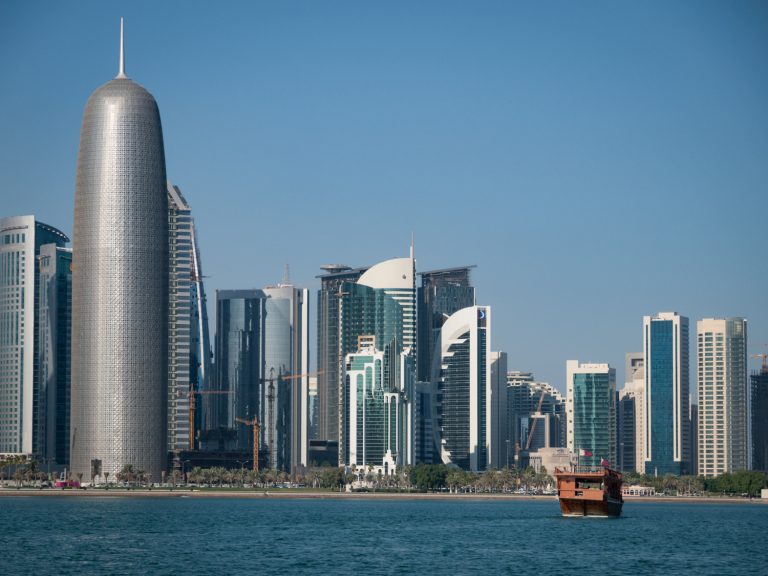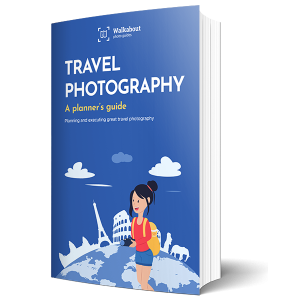
Booking your travel – tips and tricks
In this article
Booking the key features of your travel plan can sometimes feel stressful, with a seemingly endless set of details to take care of.
Or… you could be one of the lucky people who enjoy the build up of anticipation for your trip.
Booking your accommodation is one of the two biggest tasks for any travel, the other being getting there and back.
Like most things in life, the earlier you start nailing down the core elements of your plan, the easier everything becomes.
This article goes into some tips and tricks that can help you make smart decisions for your trip’s accommodation.
In addition, we explore the ways that advanced bookings for events can help money, time, and avoid disappointment too.
Advance booking of activities / entries
Getting key trip events booked in advance means that you will not have to worry about sorting tickets out when on the ground.
And in all likelihood, you’ll save money in the process.
Here are some advance bookings that you may want to resolve before your trip:
Making sure that the photo opportunity(s) exists
If the purpose of your trip is to visit specific locations, make sure that these get confirmed very early your planning.
Arriving at your destination to find out that the tickets to the venue have sold out, or that the museum is closed for renovation, can put a dampener on your mood.
Or worse, the monument you want to photograph is currently undergoing renovation / restoration and is enveloped in scaffolding.
This tends to happen quite often.
So often, you may think there’s some conspiracy against you, with the “scaffolding people” knowing your plans.
In reality, lots of scaffolding is a good economic indicator that there’s money to be spent in a city.
“Skip the line” tickets
When time is of the essence, the queue is long, your feet are tired, and the sun is beating down on those in line, you’ll want a win.
This is when you’ll be very glad that you paid the extra money for a “skip the line” type entry.
Skip the line type bookings can feel like they add to your trip cost.
In short – yes, cumulatively they do add up.
However, consider the time saving gained in each instance.
For example, for an extra $5 / €5 / ¥100, you will save yourself 30 minutes of standing around.
This frees up your time for other things, and leaves you feeling less tired / stressed.
That’s often a good exchange for the money.
Cheaper prices
As a general rule, the further ahead in time that you book the trip, the cheaper the cost.
This is principally because there are greater options available, including cheaper fares that get snapped up fast.
It is also because the vendor is wanting to offer a discount for making a commitment so far in advance.
As a rule, booking at least three weeks in advance can give you great savings with a reasonable choice.
For holiday periods, including Christmas / New Year (globally), expect to pay over the odds no matter how far in advance you book.
It’s simple economics, where the demand well outstrips the supply, and sellers are more than happy to capitalise on this.
Hotels and other accommodation
Here are some considerations for booking accommodation that may help contribute to your photo opportunities during your trip.
Booking a room with a view
Imagine being able to wake up in the morning, open the shutters, and look out onto an Italian piazza, or the mountains, or sea.
Many hotels advertise rooms with “city view” or “seaside view” etc. however, there can sometimes need to be a bit of expectation management.
There are few things that you can do to improve your odds of getting a decent room.
Google Maps Street View (or equivalent)
Use this tool to “virtually” walk around the hotel.
When you “look up”, check to see if you get a sense that the windows of this hotel will actually face onto the scene that you have in mind?
Online reviews
Have a look at hotel booking websites, as well as blogs.
Sometimes the view is mentioned, particularly if it is of significance.
Call / email the hotel
Be open and honest about what you are looking for, and ideally see if the hotel can send you photos of the view from the room.
Alternatively, the hotel can let you know which room(s) will have the imagined view.
Make sure that your booking clearly states that you’ve booked Room x (the one with the view shown).
Room with no view
This can come in several forms, from a view of the drain pipes in the small ventilation shaft in the middle of the building, to the inner courtyard just facing other rooms of the hotel.
The worst can be the hotel room with no windows (we’re not counting capsule hotels here).
Sadly, some hotels go to lengths to disguise or hide the fact that the room has no windows.
It’s only when you look at the fine print detail of the room details that this becomes apparent.
Usually these rooms are significantly cheaper than other rooms, which can often be the tip-off to look further into this.
If you accidentally end up in such a predicament, hope for a good roof terrace.
Roof terrace / bar / restaurant
This can often turn out to be better than the room itself, for a few reasons.
Often there isn’t a pane of glass between you and what you are looking to photograph.
There also can be 360 degrees views, opening up more photographic opportunities.
And, you can potentially enjoy a drink while you capture sunset shots.
Expensive views
What if the hotel has a view that is killer, yet charges an arm and a leg for the privilege?
Perhaps you are able to access this view from an associated roof terrace, even if it means buying a drink?
An expensive cocktail is still cheaper than a night in the hotel.
Alternatively, consider staying in the hotel for one night simply to get the vantage point.
You can then stay somewhere that is more within your budget for the remainder of the time.
Ideally look to stay in the room with the killer view at the very start or end of your trip.
This reduces the logistical hassles associated with moving from one hotel to another.
Just be aware that there is a risk that there could be bad weather during your stay.
Like every part of your trip, timing and good luck with the weather are key.
Specific consideration for international travel
Make sure that you have at least your first night of accommodation booked when travelling to an international destination.
Most countries will require an address on an immigration form.
So long as you know where you’ll be on the first night, you’ll have something to write down.
Not having a place to stay is likely to invite a lengthy conversation with the immigration officer, and this will get your trip off to a bad start.
In addition, in some countries, staying anywhere other than a hotel will mean that you have to register with the local police (e.g. in China).
Private property stays
This can come in three main forms, each of which has its pros and cons as it relates to a photo trip.
Friends and family
This can be a fantastic opportunity to catch with the long-lost cousin, or the friend that you haven’t seen in a while.
There’s also a good chance that the accommodation and food during your stay won’t cost anything, too.
What’s not to like here?!?
Well… Consider that the best times of the day to take photos are often fairly unsocial hours, and / or conflict with meal times.
Some negotiation in advance is required here.
Agree in advance with your hosts that you will be out and about during certain times.
This helps avoid disappointment or embarrassment once you are their guest.
Your hosts may (reasonably) expect you to be spending time with them, eating dinner with them, sleeping in bed at dawn like the rest of the population.
Or, you could consider a hybrid option of staying with them for part of your trip, and alternative accommodation for the rest of the time.
Also note that couch surfing and other “staying with strangers” variants come with the same perks and pitfalls.
Private property stay marketplaces (such as AirBnB)
This is definitely an option that should be explored, particularly if your stay is going to be more than a few days.
The costs often are cheaper than hotels, you’ll get more space and privacy, cooking space, and a peek into what local housing is like.
However, many cities / countries are clamping down on the use of such services as AirBnB and can even create legal issues for you if caught illegally using these services.
Logistically, finding your accommodation sometimes proves a little more challenging, particularly if you arrive at night.
If you are unsure about how to make this happen, consider a hybrid model of staying in a hotel for the first night.
Once you have your bearings for the city, you can obtain the keys to the property at a leisurely hour the next day with less stress.
“Home stays” in traditional housing / communities
The concept here is simple; a home stay allows you to live like a local during your stay.
Doing so will no doubt present you with excellent photo opportunities, not to mention getting insight into the local culture that no hotel could provide.
Bear in mind that this is an “experience” as much as anything else, and so should be thought of differently to a hotel.
You are getting hospitality, and so will need to play your part in this exchange.
This includes being present for meal times, engaging with your hosts, learning a little about them, and sharing experiences.
And more often than not, being prepared to let them practice their English with you.
A home stay should not be treated as a opportunity to have a quiet night, or for when you’re exhausted after days of running around a location!
Key takeaways
Careful consideration of what are the key components of your trip will help you determine what needs to be confirmed in advance.
Booking your accommodation and key event tickets means a lot less headache as you approach your trip.
